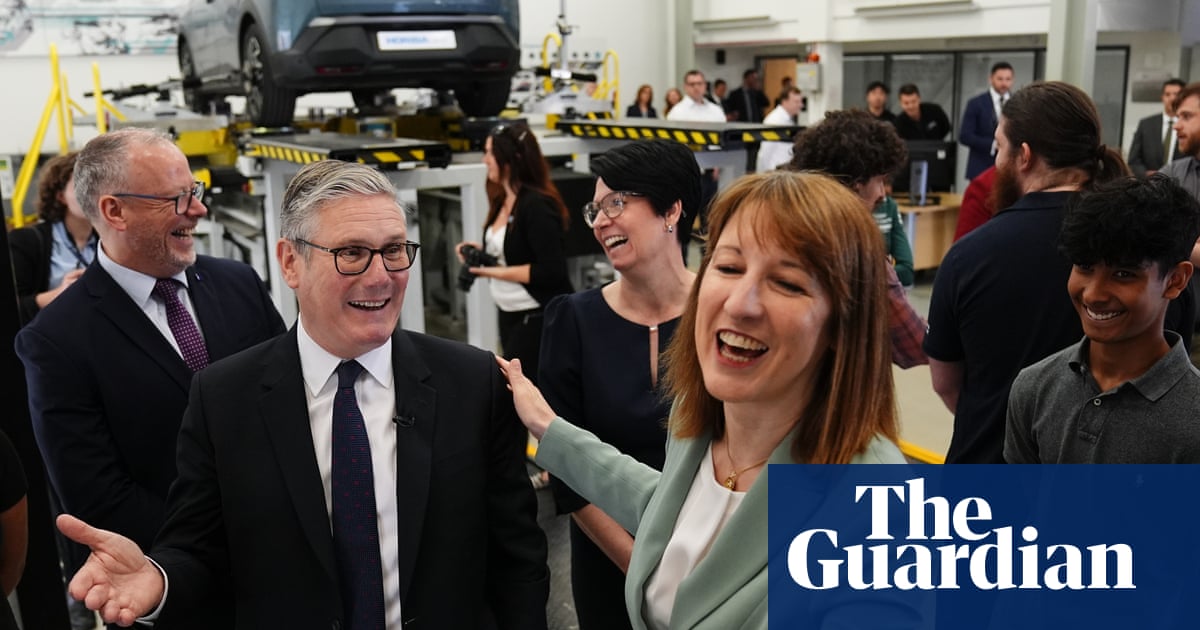Rachel Reeves has called for de-escalation of the conflict in the Middle East, warning that rising global oil prices could hit the UK economy as she announced Labour’slong-awaited industrial strategy.
Launching the policy package at an engineering business in Nuneaton alongside Keir Starmer and the business secretary,Jonathan Reynolds, Reeves acknowledged the potential impact on companies of the conflict.
“We want de-escalation because it’s the right thing for the Middle East, but we also want de-escalation because of the ramifications of conflict in the Middle East for the rest of the world, including the UK,” the chancellor said.
“We have seen increases in oil prices, in recent days, and weeks, which of course, will have an impact on the UK economy.
“We recognise the challenge that businesses and families faced with energy costs, which is part of the reason why we’re doing what we’re doing today, but also why, for example, we’ve extended the warm homes discount to try to take money off people’s energy bills.”
Reeves also said she understood US concerns about the risk of Iran developing a nuclear capability, saying: “60% enrichment of uranium is not for civil nuclear. And we’ve long shared those concerns.”
As part of the industrial strategy, the government has announced a new scheme aimed at cutting the electricity bills of energy-intensive businesses, to come into force from 2027.
Reynolds said the energy plan would bring the UK from being an “outlier” in Europe on energy prices “right into the middle of the pack”.
Energy-intensive businesses in Britain have long complained thattheir electricity bills are uncompetitively high.
Reynolds and Reeves said the government intended to fund the scheme by spreading the costs of the “contracts for difference” through which it pays for renewable energy generation out over a longer period and earmarking increased future revenue from the emissions trading scheme from rising carbon prices.
“We are talking about a major shift in competitiveness for the sectors covered by the new British industrial competitiveness scheme: it moves us from being an outlier right into the middle of the pack – cheaper than Italy, Czech Republic, broadly comparable to, say, Germany,” Reynolds said.
Sign up toBusiness Today
Get set for the working day – we'll point you to all the business news and analysis you need every morning
after newsletter promotion
He added: “There’s no increase in bills for anybody else and no implications for tax or borrowing from these policy interventions by the energy department that will create the headroom to allow us to exempt these businesses.”
The business secretary also emphasised the cross-Whitehall nature of the industrial strategy, which covers eight sectors the government sees as having potential for significant growth – including advanced manufacturing, financial services and the creative industries.
The government published separate plans for five of the eight sectors on Monday, alongside the industrial strategy, with three more – life sciences, defence and financial services – expected before parliament goes into recess next month.
“This has got real, significant interventions in it that are not only very important in their own right, they do get to the core of what I wanted, what we wanted, which is, you know, this is not the Department for Business and Trade or the Treasury industrial strategy, this is the British government’s industrial strategy,” he said.
Reynolds also highlighted a new approach on preparing strategic sites for investment, the significant increase in the budget for the taxpayer-backed British Business Bank announced at the recent spending review and more powers for metro mayors to shape economic development.
